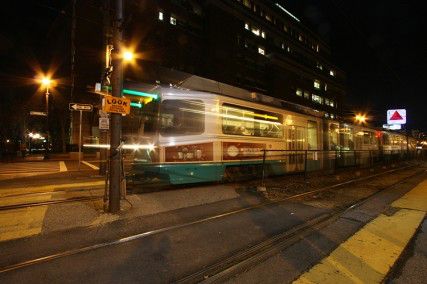
Boston has been ranked among the country’s most bike-friendly and energy-efficient cities with one of its most trafficked public transportation systems in 2013, but how those trends will continue is uncertain with Boston Mayor-elect Martin Walsh set to replace Thomas Menino after two decades.
Menino has pushed for a citywide shift from cars to alternative modes of transportation for years by petitioning to keep fares on the Massachusetts Bay Transportation Authority affordable and creating a branch of city government dedicated to biking.
“Mayor Menino has always said the car is no longer king,” said John Guilfoil, spokesman for Menino’s office. “He’s enacted several of these [alternative transit] policies over his 20 years in office, so this has been a gradual shift … and the incredible popularity of the programs show Boston is ready for the kind of transition he has advocated.”
The MBTA announced on Dec. 3 that they will offer public transit until about 3 a.m. on Saturday and Sunday in 2014.
Boston has been ranked as one of the worst cities to drive in, but due in part to a shift in preferred mode of transit, the city has also seen one of the largest shifts to bicycling as a major mode of transport in the United States over the past five years, according to a Dec. 4 report.
Nicole Freedman, president of Boston Bikes, an organization founded in 2007, said they have helped create a total of more than 120 miles of bike paths in Boston, more than double the 55 miles in 2008 and at least an additional 75 miles are expected to be completed by 2018.
“The results speak for themselves,” she said. “It’s a very natural transition to bicycling, as shown by the popularity of it, and we’ve had a tremendous transition to making Boston one of the most bike-friendly cities in the nation, and we’re naturally going into phase two where we try to make it a world-class bicycling city. A lot of it obviously depends on [the policies of] Mayor-elect Walsh, but again, we’re already in the midst of a natural transition time.”
Though there has been progress, biking in Boston still has much room to grow with several areas Walsh should promote, said David Watson, executive director of MassBike, an advocacy group for better biking availability in the Commonwealth.
“No question, Boston a completely different city than it ever has been from a biker’s perspective,” he said. “In terms of an ideal, we’re not there yet, but we’re doing well. We would like to see Walsh not only continue the programs Menino started but actually accelerate that change. We know he [has] expressed strong support for bicycling. The question is, is Walsh going to make it as much or more of a priority as it is now, and we just don’t know.”
Although the Dec. 4 report showed a decline in MBTA ridership through 2011, it reached record highs and revenues this year during the three games the World Series was in the Hub.
Michael Dukakis, former governor of Massachusetts and professor of public policy at Northeastern University, said the increase is largely due to continued investment at a state and local level in transportation, a trend that must continue when Walsh takes office.
“I don’t see how you can take public office these days and not focus on transportation just because it’s so important,” he said. “The state dominates transportation policy even though it’s so important to Boston … but that’s going to be challenged with Walsh because he’s such a huge advocate … and if the mayor asserts himself in some of these projects, it will have a profound effect on how they happen or if they happen at all.”
Apart from the MBTA, Dukakis said Walsh has to focus on drivers, bikers, walkers and everyone in between, because Boston has seen such a shift in both population size and in its preferred way of getting around the city.
“Everything’s important with this,” he said. “People are driving less, and every single person getting out of a car and onto the T or onto a bicycle is a plus in terms of decongesting the city. Menino’s been very strong on that … and Walsh has a chance to push it even more, to work with the governor and make it even better.”
This is an account occasionally used by the Daily Free Press editors to post archived posts from previous iterations of the site or otherwise for special circumstance publications. See authorship info on the byline at the top of the page.



